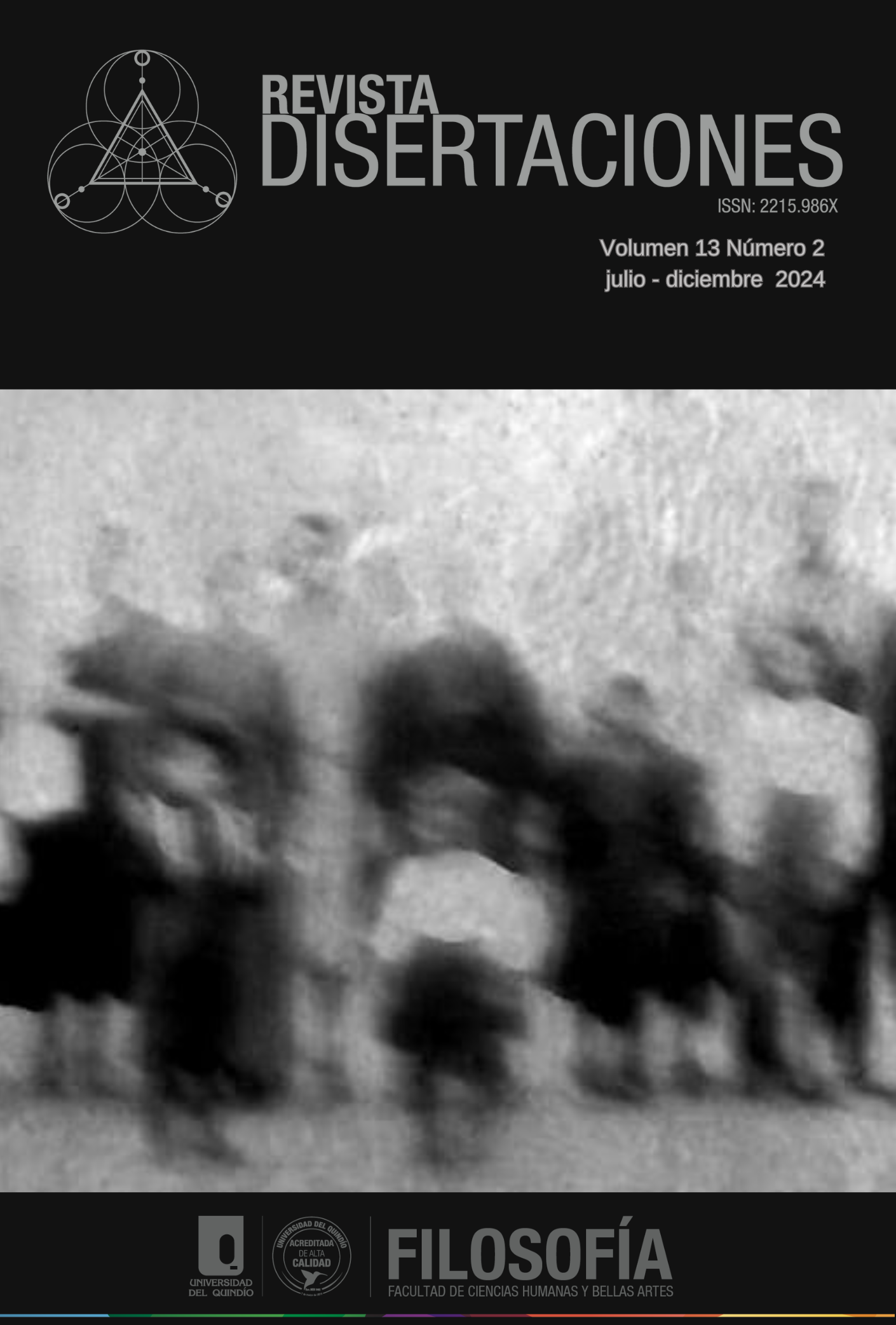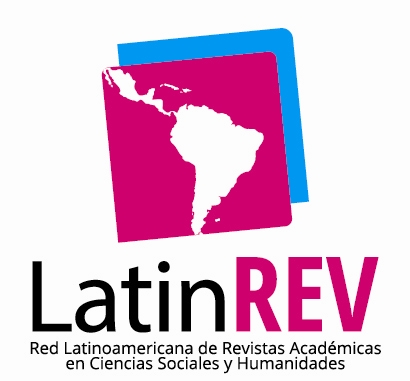Falling into Provocation
Neocommunitarianism and Potentia as Destituent Power
DOI:
https://doi.org/10.33975/disuq.vol13n2.1396Keywords:
chivo expiatorio, neocomunitarismo, poder destituyente, potentia, sindicato socialAbstract
This study presents a different perspective for politics in Latin America, focused on the generation of alternative political subjectivities and personal transformation. It criticizes the imposition of liberalism and argues that current electoral options have not produced a significant change for the majority of the population. It proposes the use of destituent power and insurrection, instead of revolution, as means to reduce the influence of the state. This implies the creation of communities of choice, whose main criterion is shared antagonism against some external factor. These communities could more effectively address not only the economic issue, but also that of recognition and the problems derived from it. Finally, it emphasizes that this struggle does not seek to establish any ideology as the basis of its approach and that serves as a guide. Instead, it is necessary to learn to recognize and value the needs of the subjectivities that make up the group, and to attend to them directly, discovering new sources of sustenance in contact.
References
Abercrombie, Nicholas, Stephen Hill y Bryan S. Turner. The Penguin Dictionary of Sociology. London: Penguin Books, 2006.
Agamben, Giorgio. Estado de Excepción. Buenos Aires: Adriana Hidalgo Editora, 2007.
Benjamin, Walter. Para una crítica de la violencia. Buenos Aires: Leviatán, 1995. https://www.insumisos.com/M4T3R14L/BD/Benjamin-Walter/Para%20una%20critica%20de%20la%20violencia.PDF.
Boetie, Etienne de La. El Discurso de la Servidumbre Voluntaria. La Plata: Utopía Libertaria, 2008.
Braidotti, Rosi. Transpositions. Cambridge: Polity, 2006.
Buber, Martin. I and Thou. Edinburgo: T & T Clark, 1937.
Butler, Judith. El género en disputa. Barcelona: Paidos, 1999.
Cuda, Emilce. «Latinoamérica en el siglo XXI:posmarxismo, populismo y teología del pueblo.» Cuadernos de Filosofía Latinoamericana (2019): 57-75.
Dana, Miriam Jerade. «De la violencia legítima a la violencia revolucionaria.» Acta poét (2007): 257-278. http://www.scielo.org.mx/scielo.php?script=sci_arttext&pid=S0185-30822007000100013&lng=es&tlng=es.
Dreyfus, Hubert L. y Paul Rabinox. Michel Foucault: Beyond structuralism and hermeneutics. Chicago: The University of Chicago Press, 1983.
Dussel, Enrique. 20 Tesis de Política . México, D.F.: Siglo XXI Editores, 2006.
«Gaceta Parlamentaria.» 16 de Junio de 2000. Cámara de Diputados. http://gaceta.diputados.gob.mx/. 23 de Noviembre de 2023.
Gago, Veronica. «La política de los muchos.» Nueva Sociedad (2014): 101-112.
Girard, René. El Chivo Expiatorio. Anagrama, 1986.
Hall, Stuart, David Held y Tony McGrew. Modernity and its Futures. Cambridge: Polity Press, 1992.
Hardt, Michael y Antonio Negri. Asamblea. Madrid: Akal, 2017.
Heidegger, Martin. Contribuciones a la filosofía (Del acontecimiento). Trad. Pablo Oyarzun R. Santiago: Contenido, 1997.
Honneth, Axel. La Lucha por el Reconocimiento. Barcelona: Grijalbo Mondadori, 1997.
Klein, Naomi. La doctrina del shock. El auge del capitalismo del. Buenos Aires: Paidos, 2008.
Laclau, Ernesto. «Deconstrucción, pragmatismo, hegemonía.» Agora (1997): 63-89.
—. La razón populista. Fondo de Cultura Económica, 2004.
Levinas, Emmanuel. Totalidad e Infinito. Salamanca: Ediciones Sígueme, 2002.
Luxemburgo, Rosa. Reforma o Revolución. Madrid: Fundación Federico Engels, 2006.
Meyer, Román. «Nexos.» 10 de Abril de 2018. El vigente espíritu de Zapata. https://redaccion.nexos.com.mx/el-vigente-espiritu-de-zapata/. 23 de Noviembre de 2023.
Moody, Kim. «Towards an International Social Movement Unionism.» New Left Review (1997): 52-72.
Newman, Saul. Center for a Stateless Society. 25 de Febrero de 2022. <https://c4ss.org/content/56234>.
—. «What is an Insurrection? Destituent Power and Ontological Anarchy in Agamben and Stirner.» Political Studies (2016): 1-16.
Onfray, Michel. La Fuerza de existir. Barcelona: Anagrama, 2010.
Reid, Michael. «The flickering light of liberalism in Latin America.» The Economist 16 de Abril de 2020. https://www.economist.com/the-americas/2020/04/16/the-flickering-light-of-liberalism-in-latin-america.
Santos, Boaventura de Sousa. El milenio huérfano. Ensayos para una nueva cultura política. Madrid: Trotta, 2005.
Scannone, Juan Carlos. «Del indivivualismo competitivo a la comunion ?Hacia un nuevo paradigma sociocultural?» Stromata (2007): 37-51.
—. «El futuro de la reflexión teológica en América Latina El comunitarismo como alternativa viable .» Stromata (1997): 13-43.
—. «Sociedad civil y neocomunitarismo en América Latina.» Razón y Fe (1999): 613-625.
Sennett, Richard. The Culture of the New Capitalism. New Haven: Yale University Press, 2006.
Stirner, Max. El Único y su propiedad. Buenos Aires: Libros de Anarres, 2003.
Taylor, Charles. La ética de la autenticidad. Barcelona: Ediciones Paidós, 1994.
Vallespin, Fernando y Mariam M Bascunan. Populismos. Madrid: Alianza Editorial, 2017.
Vattimo, Gianni. Comunismo hermenéutico De Heidegger a Marx. Barcelona: Herder, 2012.
Villoro, Luis. «Democracia.» Villoro, Luis. La alternativa: Perspectivas y posibilidades de cambio. México: Fondo de Cultura Económica, 2015.
Williams, Raymond. Keywords A vocabulary of Culture and Society. New York: Oxford University Press, 2015.
Zúñiga, Luis Alfonso y Harold Valencia Lopez. «La teoría del reconocimiento de Axel Honneth como teoría crítica de la sociedad capitalista contemporánea». Reflexión Política, 2018.

Downloads
Published
How to Cite
Issue
Section
License
Copyright (c) 2024 Sergio Ruvalcaba Solorio

This work is licensed under a Creative Commons Attribution-NonCommercial-NoDerivatives 4.0 International License.














